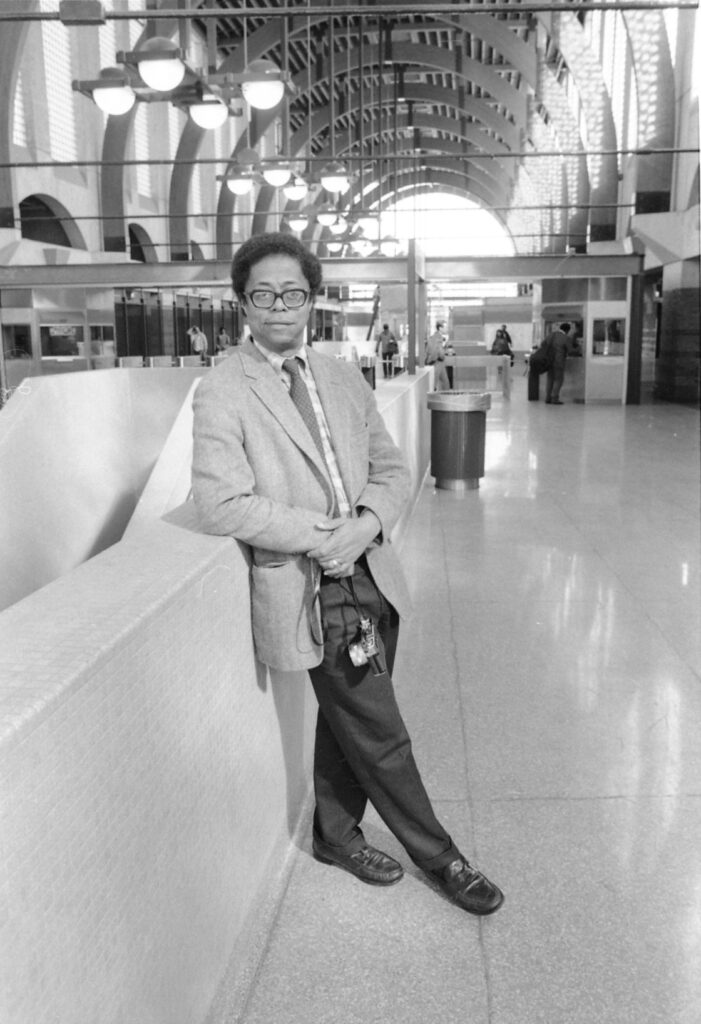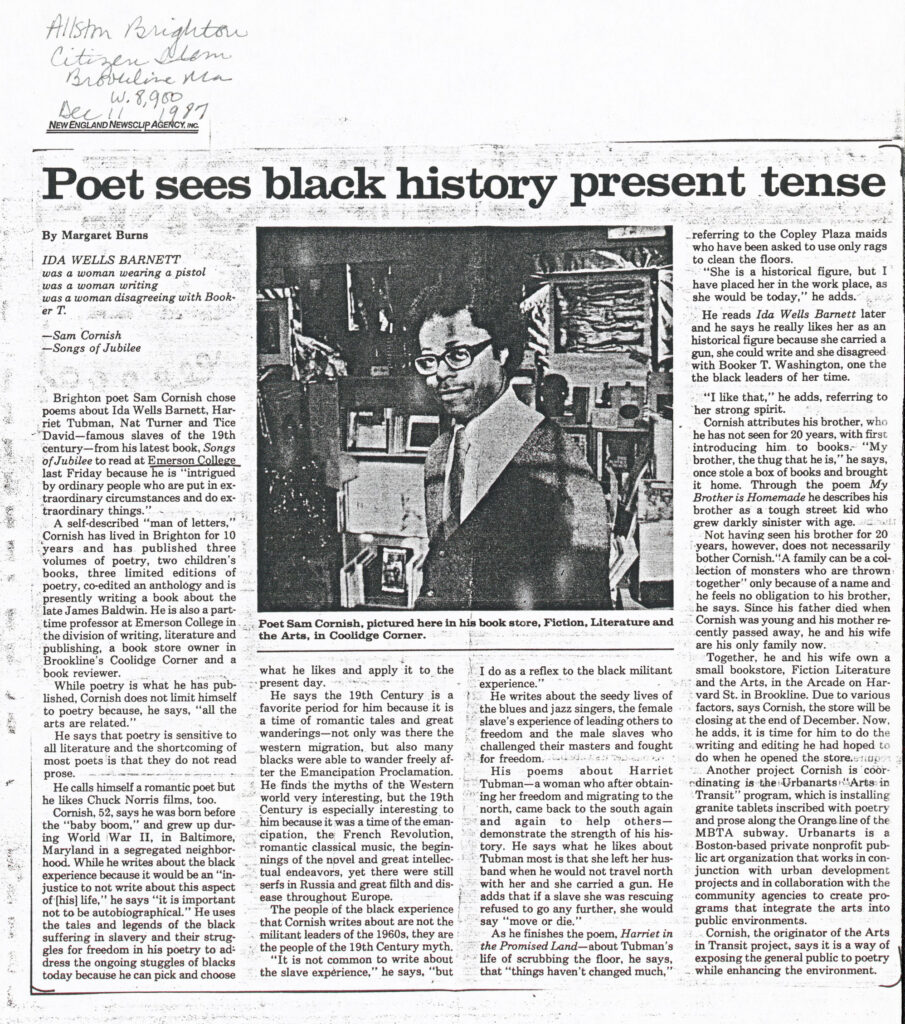Honoring Black History Month: Sam Cornish

Throughout Black History Month, we’ll be highlighting historic Black Emersonians who, over the past century, have broken new ground and planted the seeds of justice through their contributions to the arts and communication.
Sam Cornish
1935-2018
Sam Cornish was Boston’s first poet laureate and a guide and mentor to generations of young voices as a longtime Emerson faculty member.
Associated with the Black Arts Movement of the 1960s and ‘70s, and influenced by poets as diverse as the Beats, Gwendolyn Brooks, Mary Oliver, Langston Hughes, and T.S. Eliot among countless others, Cornish wove issues of race and class, family and history into his spare and precise poems.
Cornish delighted in his role as poetry ambassador, and loved meeting with Bostonians in every corner of the city, sharing his work and that of others he admired, and encouraging them to find their own voices through verse. He urged city leaders to follow his lead in a 2014 BNN News interview.
“I’m hoping when the mayor invites the experts in to find art … they don’t go to the universities, they don’t go to the theatre, but they go into the neighborhoods … to find out what’s there, and for me, I’ve had that opportunity.”
He began writing poetry in his native Baltimore, while working at the city’s Enoch Pratt Free Library, where he edited a literary magazine by children and young adults from low-income neighborhoods. He would go on to publish children’s books, including Your Hand in Mine (1970).
Cornish won a National Endowment for the Arts grant in 1968, the same year he was included in Black Fire: An Anthology of Afro-American Writing, a classic of the Black Arts Movement edited by Amiri Baraka and Larry Neal. In Boston, he published his first collection, Generations (1971). The book is, “in many ways, a response to the literature of the Black Arts Movement, as it tends to deal with one famil[y’s] imaginary and historical growth through slavery into the end of the 1960s,” Cornish wrote on his webpage.
Over the next four decades, Cornish would publish a number of books of poetry, including Sam’s World (1978), Songs of Jubilee: New and Selected Poems 1969-1983 (1986), Folks Like Me (1993), Cross a Parted Sea (1996), An Apron Full of Beans (2008), and Dead Beats (2011), and was included in several anthologies. As in Generations, Cornish’s poems would explore the Black experience, both within his own family and collectively, throughout American history.

In 1990, Cornish published his memoir, 1935, which he described as “an imaginary account in prose and poetry of the Cornish family in American history.”
From 1982 to 2004, Cornish taught literature and creative writing at Emerson, and developed courses on the Beat Generation, the Harlem Renaissance, and Gay Literature, among others. He also pioneered African American studies at the College, and had a loyal following of students each year, according to his friend and colleague, Professor Emeritus DeWitt Henry.
In his Boston Globe obituary, Cornish’s wife, Florella Orowan, said he was immensely proud of his outreach work as poet laureate, as well as his more than 20 years in Emerson classrooms.
“It excited him to find new talent,” Orowan told the Globe. “That’s why he loved teaching so much. That’s when he was happiest.”
“Spring 1931”
From Folks Like Me (1993)
Northern black
boy traveling
with empty belly;
these are the American
blues,
shanties, and fine
big houses, a sad
song
on a poor man’s tongue
land of cotton and trouble
night sweet as dusk
on its gentle people
until today,
when
Scottsboro
was just a place
where the train
had to stop
and the Southern
night
was beautiful
I traveled
hungry
from Memphis to Georgia
drinking my whiskey
and
singing my blues
“Harriet Brings Runaways North”
From Songs of Jubilee: New and Selected Poems (1969-1983)
Harriet Tubman trampin’ out
of the wilderness
Leaning on the Lord
Get ready for Harriet she
Comes in the night
Harriet sings only twice
Harriet takes you
Where the rain can’t wet you
No sun to burn you
When Harriet sings
Runaway it’s safe
Harriet
We will follow you
To the grave
Harriet
Journeying North
Walk them easy
Don’t leave them
Behind
Categories